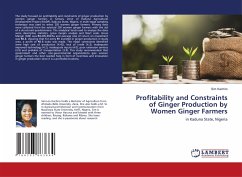Indian National Forest Policy in 1988, emphasis that the forest based industries need to develop of their own raw materials for their consumption. Matchwood industry is one of the oldest forest based industries in India which has two distinct sectors i.e., mechanized and non-mechanized. The mechanized sector are five factories strategically concentrated in southern India, mostly in Tamil Nadu whereas non-mechanized sector cottage industries have developed profusely, and at present about 12000 units are located in the Southern states. Now Sivakasi meet about 55 to 60% of India's requirement of safety matches. Nearly 55% of workers are employed in the match sector especially women. On the basis of demand of matches it has been estimated that demand for matchwood was 14, 15,000 m3 during 2000. Enlightened sections of the matches sector feel that efforts should be mounted to raise fresh match wood plantations in Tamil Nadu to bridge the current demand-supply gap. According to the consultancy project findings on the economics of growing `Ailanthus excelsa' in the total supply chain, nearly 80 per cent of the matchwood is now supplied by Kerala and only 17 per cent by Tamil Nadu.







